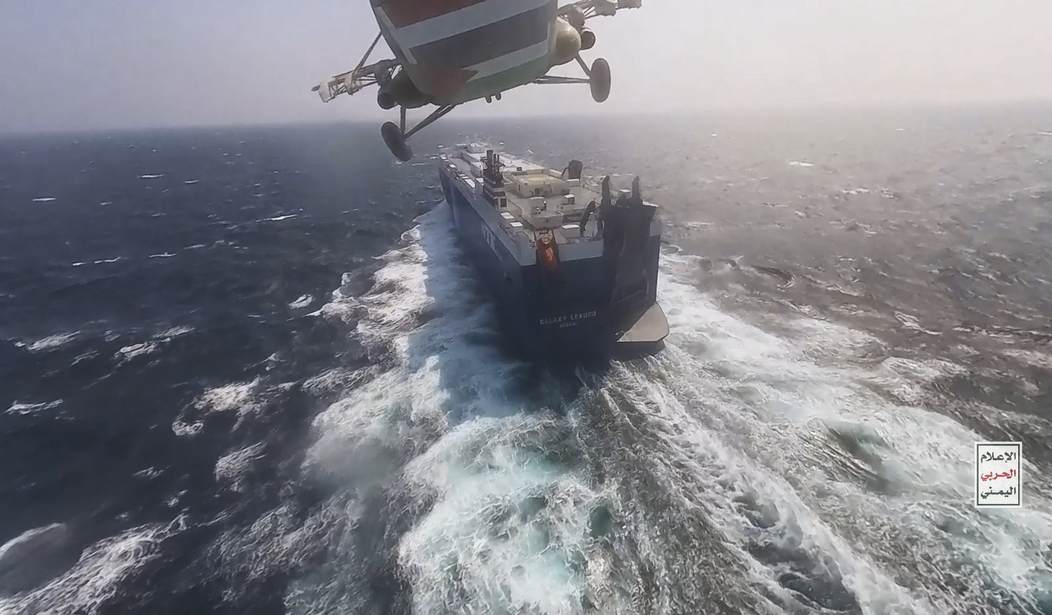A cargo ship hit by a Houthi missile last month sank in the Red Sea on Saturday, prompting fears of an environmental disaster.
The Feb. 18 strike against the vessel, the Rubymar, which was shipping 22,000 metric tons of fertilizer to Bulgaria, caused an 18-mile oil slick even before it sank, U.S. Central Command said. Recovery efforts of the vessel were stymied by the fact that no companies wanted to conduct business in an active war zone, according to The Wall Street Journal.
“The approximately 21,000 metric tons of ammonium phosphate sulfate fertilizer that the vessel was carrying presents an environmental risk in the Red Sea,” CentCom said, noting that its sinking “also presents a subsurface impact risk to other ships transiting the busy shipping lanes of the waterway.”
Sinking of Motor Vessel⁰Rubymar Risks Environmental⁰Damage
— U.S. Central Command (@CENTCOM) March 3, 2024
On Mar. 2 at approximately 2:15 a.m., MV Rubymar, a Belize-flagged, UK-owned bulk carrier, sank in the Red Sea after being struck by an Iranian-backed Houthi terrorist anti-ship ballistic missile on Feb. 18.
The ship… pic.twitter.com/fRUM4ll4cY
The Yemeni government, meanwhile, said the Rubymar’s sinking “will cause an environmental disaster.”
Julien Jreissati, the program director at Greenpeace Middle East and North Africa, called for emergency response teams to be given “immediate access” to the site.
“As well as any further leaks of fuel oil from the engines, the sinking of the vessel could further breach the hull, allowing water to contact with the thousands of tons of fertilizer, which could then be released into the Red Sea and disrupt the balance of the marine ecosystems, triggering cascading effects throughout the food web,” Jreissati said.
“This disruption could have far-reaching consequences, affecting various species that depend on these ecosystems and, in turn, potentially impacting the very livelihoods of coastal communities.” (The Washington Post)
Recommended
Efforts by the U.S. and allies to end the attacks have failed to deter the Houthis thus far.
"Yemen will continue to sink more British ships, and any repercussions or other damages will be added to Britain’s bill," Hussein al-Ezzias, the Houthi's deputy foreign minister, said in a post on X, according to translations. "It is a rogue state that attacks Yemen and partners with America in sponsoring the ongoing crime against civilians in Gaza."
According to CentCom, the vessel is Belize-flagged and UK-owned. It is believed to be the first ship to sink from Houthi aggression in the region in response to Israel's war against Hamas.
























Join the conversation as a VIP Member